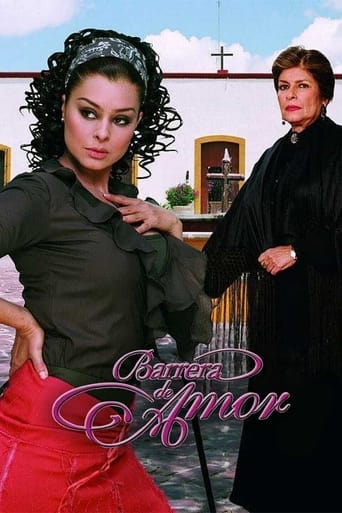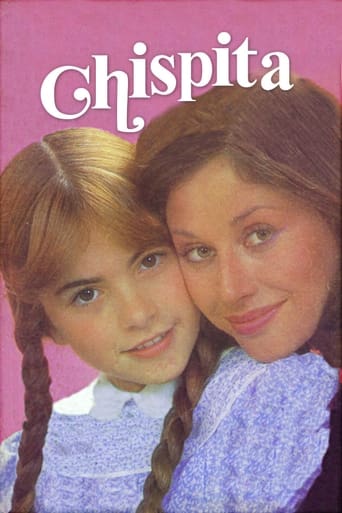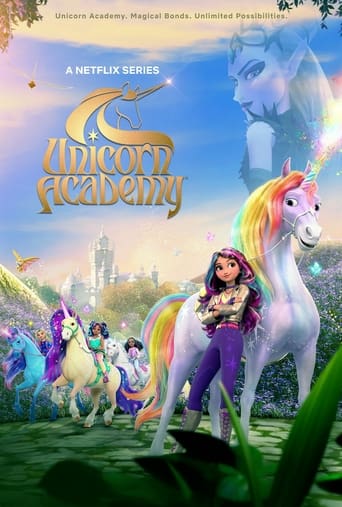Best movies & TV Shows like Barrera de amor
A unique, carefully handpicked, selection of the best movies like Barrera de amor Starring Yadhira Carrillo, Sergio Reynoso, Raquel Olmedo, Alexis Ayala, and more. If you liked Barrera de amor then you may also like: Heridas de Amor, Alborada, La antorcha encendida, Lazos de Amor, La Madrastra and many more popular movies featured on this list. You can further filter the list even more or get a random selection from the list of similar movies, to make your selection even easier.
Barrera de amor is a Mexican telenovela, which was produced by and broadcast on Televisa in 2005.
You may filter the list of movies on this page for a more refined, personalized selection of movies.
Still not sure what to watch click the recommend buttun below to get a movie recommendation selected from all the movies on this list
Alborada
Alborada is a telenovela made by the Mexican TV network Televisa. It is an historical drama, set in colonial Panama and Mexico a few years before Mexican Independence from Spain. The series was broadcast from December 2005 to April 2006 on Univision in the United States. Alborada won the TV y Novelas award for best telenovela of the year.
La antorcha encendida
A Mexican telenovela produced in 1996. It was the last historical telenovela produced by Televisa. The plot tells the Independence of Mexico, with an emphasis on historical accuracy.
Lazos de Amor
Lazos de Amor is a Mexican telenovela from 1995. It aired on Televisa, and starred actress and singer Lucero.
La Madrastra
La Madrastra is a Mexican telenovela. It was produced by Televisa and broadcast on Canal de las Estrellas in Mexico from 7 February 2005 through 29 July 2005. The program became an unexpected success, garnering ratings in excess of 30 points. Starring Victoria Ruffo and César Évora, who last appeared together in 2000's Abrázame muy fuerte, La madrastra tells the story of María, a woman who lost twenty years of her life after being falsely accused of murder and who returns to Mexico to exact revenge on her husband and friends who abandoned her and to see her beloved children once more. La Madrastra is fourth in a series of remakes of the 1981 Chilean production of the same name. The program aired five nights a week, Monday through Friday, at 9 pm for 25 weeks. A follow-up special, La madrastra: años después, aired shortly after the finale on 30 July 2005.
Forever Yours
Por Siempre mi Amor is an upcoming Mexican telenovela to be produced by Ignacio Sada Madero for Televisa. It is a remake of Mi Segunda Madre, produced by Juan Osorio. in 1990 Canal de las Estrellas will broadcast Mi Segunda Madre after Corazón Indomable concludes in late-September 2013. On June 24, 2013, it was confirmed that Susana González and Guy Ecker will star as the protagonists. Dominika Paleta and Héctor Suárez Gomís will star as the antagonists.
Piel de otoño
Piel de otoño is a Mexican telenovela that was produced by Televisa and broadcast on El Canal de las Estrellas in Mexico from 9 May 2005 through 23 September 2005 in Mexico, and from October 10, 2005, through February 17, 2005, in the United States. Starring Laura Flores and René Strickler as the series' protagonists, the show tells the story of Lucía Villarreal de Mendoza, a woman who seeks refuge from her husband and children's abuses in the friendship of a stranger on the Internet, who signs his messages only as "wind". Piel de otoño is a remake of the 1986 Televisa telenovela Cicatrices del alma. The program aired weekdays at 5 pm for twenty weeks.
Amar sin límites
Amar sin límites is a Mexican telenovela that was produced by Televisa and broadcast on that company's El Canal de las Estrellas. The program debuted on 16 October 2006 at 7:30 pm; the first ten episodes were only thirty minutes long, with the program expanding to an hour long on 30 October and taking over the 7:00 time slot previously occupied by Duelo de Pasiones. After 135 episodes, the telenovela completed its run on 20 April 2007, and was subsequently replaced with Muchachitas como tú. In the United States, Amar sin límites aired on Univisión from 17 July 2007 through 18 January 2008 at 8:00 pm. This limited-run serial is a remake of the 2003 Argentine telenovela Resistiré; it is the first such remake, as a second adaptation, Watch Over Me, was created for MyNetworkTV in the United States and debuted in December 2006. Amar sin límites stars as protagonists Karyme Lozano and Valentino Lanús, whose characters, Diego and Azul, endure a tortured romance that becomes entangled in the world of organized crime thanks to Azul's fiancé, Mauricio, portrayed by René Strickler.
Dos Hogares
Dos Hogares is a Mexican telenovela produced by Emilio Larrosa for Televisa. Anahí, Carlos Ponce, Sergio Goyri, Alfredo Adame, Laura León, Jorge Ortiz de Pinedo, Joana Benedek, Víctor Noriega, Claudia Álvarez, Abraham Ramos, Malillany Marín and Olivia Collins in the leading roles. Canal de las Estrellas aired Dos Hogares from June 27, 2011 to January 20, 2012, with Abismo de Pasión replacing it. From October 31, 2011 to May 29, 2012., Univision broadcast Dos Hogares at 3pm central, replacing one hour of Ni Contigo Ni Sin Ti.
Los Parientes Pobres
Los Parientes Pobres is a telenovela made by Mexican TV network Televisa. It is a telenovela set in Mexico. This telenovela was broadcast in 1993.
Quinceañera
Quinceañera, is a Mexican telenovela, produced by and broadcast on Televisa in 1987, starring Adela Noriega and Thalía. Quinceañera was the first telenovela to talk about substance abuse, date rape and gangs, and is considered to be the first telenovela made for teenagers. Quinceañera was named by the Associated Press as one of the ten most influential telenovelas ever to air in Latin America, and Univision tlnovelas viewers named it one of their all-time favorite Mexican telenovelas. In 2010, Quinceañera was placed #7 on the People en Español's "20 Best Telenovelas" list, and in 2012, Terra named it as one of the fifty best telenovelas of all-time.
Código Postal
Código Postal is a Mexican telenovela produced by Televisa and aired in Mexico on the network canal de las estrellas. It debuted on May 22, 2006 and finished on February 23, 2007 with hopes of duplicating the popularity of Mexican telenovela Rebelde which ended on June 2, 2006. Código Postal was replaced with Lola...Érase una vez. The serial takes place in Acapulco, a popular tourist destination in the state of Guerrero, Mexico. The series is set within an exclusive gated community where the bulk of the cast resides. Like many Mexican telenovelas the cast comprises young, attractive actors, and many of the plotlines revolve around suspense, heavy struggles, love and romance.
Amigas y rivales
Amigas y rivales is a Mexican telenovela, which was produced by and broadcast on Televisa in 2001.
La Otra Cara del Alma
La Otra Cara del Alma, previously known as Ángel Caído, La Otra Cara de Alma and El Otro Lado del alma, is a Mexican telenovela produced by Azteca. It stars Gabriela Spanic, Eduardo Capetillo, Michelle Vieth, Jorge Alberti, Amaranta Ruiz, Ramiro Huerta, Sergio Klainer and Saby Kamalich. It is a remake of El angel caido which starred Rebecca Jones, produced by Televisa in 1985. From November 12, 2012 to May 10, 2013, Azteca Trece broadcast La Otra Cara de Alma, Monday thru Friday at 8:30pm, replacing Amor Cautivo.
Locura de Amor
Locura de amor is a 2000 Mexican telenovela produced by Roberto Gómez Fernández for Televisa. It was broadcast by Canal de las Estrellas in 2000. It stars Juan Soler, Adriana Nieto and Irán Castillo.
Mirada de Mujer
Mirada de mujer is a Mexican telenovela, which was produced by and broadcast on TV Azteca in 1997, based in the Colombian telenovela of 1994 " Señora Isabel". It is considered one of the best Telenovelas in the history of the television industry in Mexico. It came a year after TV Azteca's first telenovela, Nada personal and was the first telenovela in that TV station for its five mayor stars, who had been working for the rival station, Televisa, prior to this production. In 2003 the sequel for this telenovela Mirada de mujer: El Regreso was produced. This telenovela can be dated so far as the only TV Azteca telenovela that got the TVyNovelas Award as Best Telenovela of the Year in a shocking moment, making Televisa know to the audience the respect that got over his competitor product as long as the TVyNovelas Awards are only given to Televisa programs. Aside from enjoying wide viewership in Latin America, it was also broadcast in countries like Afghanistan and Israel and Eastern Europe. In India, this was shown by Sahara TV, dubbed in Hindi, under the title of Maria.
Carrusel
Carrusel is a Mexican telenovela, produced by and first broadcast on Televisa in 1989. It covers daily life in a Mexican elementary school and the children's relationships with a charismatic teacher named Jimena. Among other plot devices, it deals with the differences between the upper and lower classes of Mexican society — specifically as seen in a romantic relationship between Cirilo, a poor black boy, and a spoiled rich girl, Maria Joaquina Villaseñor.
Labyrinth of Passion
Laberintos de pasión is a Mexican telenovela produced by Televisa in 1999. Starring Leticia Calderon, Francisco Gattorno, César Évora, in addition to the participation of Manuel Ojeda, Monika Sanchez and Azela Robinson.
Volver a Empezar
Volver A Empezar is a Mexican telenovela which starred Yuri and Chayanne. It was produced and broadcast on Televisa from July 25, 1994 until February 10, 1995.
Mujeres engañadas
Mujeres engañadas is a Mexican telenovela that was produced by Televisa and broadcast on El Canal de las Estrellas from October 25, 1999, to April 7, 2000. Produced by Emilio Larrosa, the novela stars Laura León and Andrés García as well as an ensemble cast and tells the story of four couples who live in the same apartment building.
Rafaela
Rafaela is a Mexican telenovela produced by Nathalie Lartilleux for Televisa. It is based on the Venezuelan telenovela of the same name produced in 1977. Scarlet Ortiz and Jorge Poza star as the main protagonists, while Chantal Andere, Diana Bracho and Arturo Carmona star as the main antagonists. Though Rafaela was nominated for best female antagonist, best first actor, and best first actress, it did not win any awards. Canal de las Estrellas originally broadcast Rafaela at 5pm MDT from January 31 to March 11, 2011. From March 14 to July 15, 2011, it was moved to 4PM MDT. From June 20 to August 5, 2011, Univision transmitted Rafaela weekdays at 1pm central for 2 hours, replacing Niña de mi Corazón. From August 8, 2011 to October 14, 2011, one episode was shown weekdays at 1pm central.
Rencor apasionado
Rencor apasionado is a 1998 Mexican telenovela, starring Natalia Esperón, Eduardo Santamarina, Aracely Arámbula and Víctor Noriega. It was produced by Televisa. This telenovela contains 60 episodes.
Amorcito Corazón
Amorcito Corazón is a Mexican telenovela produced by Televisa by Lucero Suarez. Rehabilitation of the Venezuelan RCTV telenovela Trapos Intimos. It stars Elizabeth Álvarez, Diego Olivera, Africa Zavala and Daniel Arenas, involving Fabiola Campomanes, Gerardo Murguia and Macaria as the main villains and stellar performances by the leading lady Mariana Karr, and Grettell Valdez. Canal de las Estrellas broadcast Amorcito Corazón from August 29, 2011, to June 10, 2012, with Cachito de Cielo replacing it. Univision confirmed an afternoon airing of Amorcito Corazón, and is currently seen weekday afternoons at 2pm central. Previously, Univision broadcast it at 3pm, replacing Dos Hogares from May 30 to June 15, 2012.
Amor en Custodia
Amor en Custodia is a Mexican television drama, inspired by the popular Argentine telenovela of the same name, and developed and produced by Emilia Lamothe. Amor en Custodia focuses on and satirizes the lives of socialite teens and young adults growing up in Mexico city. It deals with sexuality, drugs, money, jealousy and other issues. It first aired on June 19, 2005 in Mexico City, on Canal 7, and was broadcast nationally a day later by TV Azteca. The pilot episode was also made available as a free download on the series' official website. The series was first shown in the United States by Azteca America on July 18, 2005, and the final episode of the final season was broadcast in Mexico on September 12, 2008 and in the USA on October 3. Amor en Custodia holds the record for longest TV series in Mexico, with eleven seasons and 280 episodes. It has been shown in more than 13 countries, including the USA, Europe, Japan, Thailand, and Latin America, and has been translated into English, French, Japanese, and German.
Ángela
Angela is a Mexican telenovela, which was produced by Televisa and broadcast on Canal de las Estrellas in 1998. The series was first debuted on May 17, 1999 on Univision in the United States, replacing that year's hit La Mentira, and ended on September 9, 1999, being replaced by Tres Mujeres. It aired a second and a third time on Galavisión on March 15, 2000 and May 8, 2001, and ended a second and a third time on July 1, 2000 and August 24, 2001. It aired a fourth time back to Univision's late night "Grandes Historias" lineup, aired on October 28, 2003, and ended on February 27, 2004. It aired a fifth time on TeleFutura on September 18, 2006, and ended on January 8, 2007. This telenovela contained 78 episodes.
Cuando llega el amor
Cuando llega el amor is a telenovela made by Mexican TV network Televisa. It is a telenovela aimed to young audience, set in Mexico. This telenovela was broadcast in 1990.
El derecho de nacer
El Derecho de Nacer is a Mexican telenovela that was produced by Televisa and broadcast on El Canal de las Estrellas from 5 February 2001 to 25 May 2001. A remake of the popular 1981 telenovela of the same name, it stars Kate del Castillo and Saúl Lisazo.
Amada enemiga
Amada Enemiga is 1997 Mexican telenovela, starring Dominika Paleta, Susana Dosamantes and Enrique Ibáñez. It was produced by Televisa. This telenovela contained 80 episodes.
Alcanzar una estrella II
Alcanzar Una Estrella II is a telenovela produced by Televisa in 1991. It is the sequel to Alcanzar Una Estrella.
Secretos de Familia
Secretos de Familia is a Mexican telenovela, remake of Brothers & Sisters by Azteca in 2013. As of January 2013, confirmed cast includes Sergio Basañez and Anette Michel as the protagonists. As of May 13, 2013, Azteca 13 is broadcasting Secretos de Familia, replacing La Otra Cara del Alma.
Wild Heart
Corazón salvaje is a Mexican telenovela produced by Salvador Mejía Alejandre in conjunction with Televisa and broadcast on El Canal de las Estrellas. The telenovela debuted on 12 October 2009 at 9:00 pm, replacing Sortilegio, and aired for a total of 135 episodes. The final episode was broadcast on 16 April 2010, and the program was replaced with Soy tu dueña. In the United States, the telenovela debuted on 22 February 2010 at 9:00 pm on Univisión, again replacing Sortilegio. However, beginning on 26 April, the program was moved from prime time to the 12:00 midnight time slot.
El Privilegio de Mandar
El Privilegio de Mandar was a successful Mexican political parody broadcast by Televisa on Canal de las Estrellas. It started as a sketch on another Televisa show, called La Parodia, that parodies political, social and cultural events happening in Mexico. High ratings kept the show running. It was first broadcast on October 25, 2004, during La Parodia. Soon, the high success of the program encouraged the producers to separate it from the other show, so on January 3, 2005, it became an independent show. Televisa broadcast what is considered the last episode of the series on July 9, 2006, just after the federal elections in Mexico. However, some of the actors who performed leading roles stated that in a few years, when political events have advanced, they will make a return to see how things are.















































Heridas de Amor
Heridas de Amor is a Mexican telenovela from Televisa. It is a remake of the telenovela Valeria y Maximiliano.